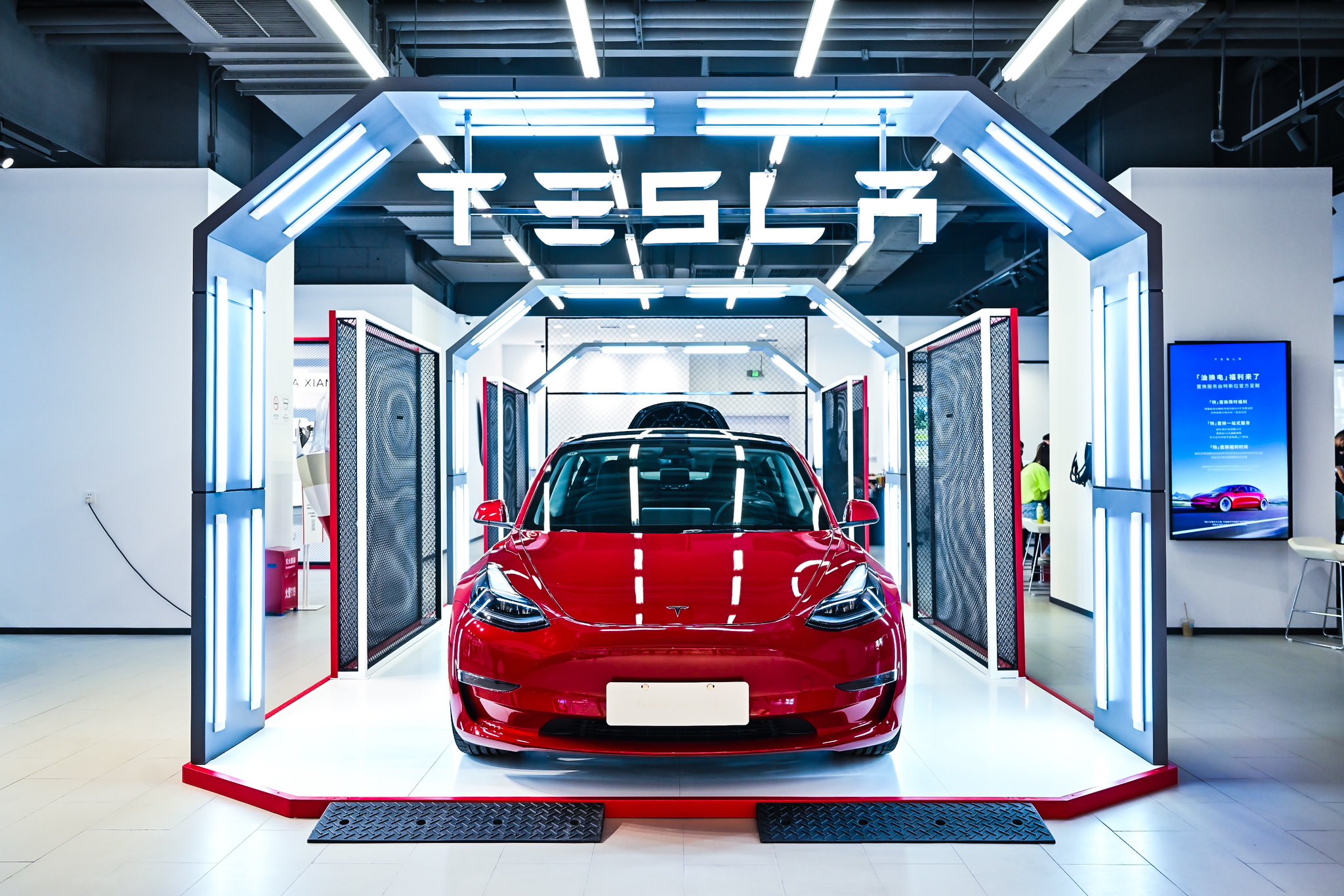
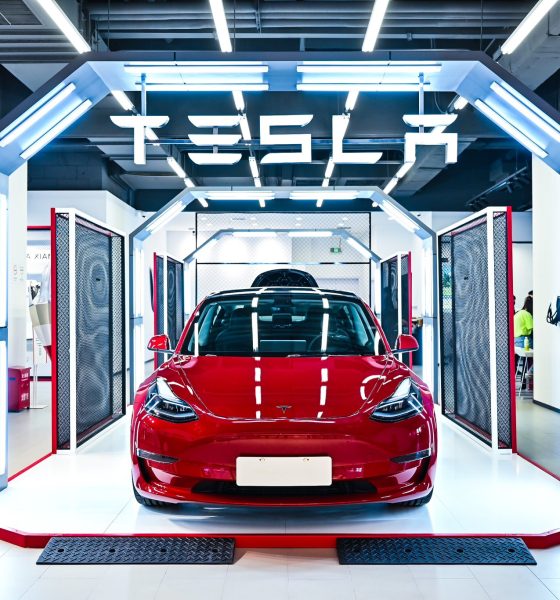
News
Elon Musk says Tesla’s competition can’t be seen with a telescope, but the company admits Chinese EV makers are ‘scary’
Tesla has been head and shoulders above competitors in the electric vehicle field for some time due to its maturity as a company and expertise in EV engineering. The fact that very few companies can say they have been developing electric vehicles for as long as Tesla has is where the company’s true advantage lies.
In fact, CEO Elon Musk believes that whoever is in second place, even though he “doesn’t really know who would even be a distant second,” is so far away, you can’t even see them “with a telescope:”
“We still don’t even know really who would even be a distant second. So yes, it really seems like we’re — I mean, right now, I don’t think you could see a second place with a telescope, at least we can’t. So that won’t last forever.”
In the past, Musk has stated Volkswagen was Tesla’s closest competition. But since former group CEO Herbert Diess left late last year, that may have changed.
Volkswagen sold ~99k EVs out of 1.9M in Q1, seeks to gain 10% market share in North America by 2030
Tesla is not only a leader in EV tech, but it also has been extremely resilient through the past few years. As the COVID-19 pandemic disrupted supply chain regularity in 2020, Tesla undoubtedly felt the pressure. Its order log lengthened in nearly every market, while supply continued to dwindle. Even to this day, Tesla executives are notorious for stating the company has a supply problem, and not a demand one.
While companies like Rivian, Polestar, and Lucid, and automotive mainstays like Ford and General Motors, have offered comparable EV options to consumers, some of which performed extremely well in 2022 with sales. But despite this, Musk still maintains that Tesla’s biggest competitors do not lie within the United States. Instead, a foe that was mentioned in previous earnings events was mentioned: the Chinese.
“The Chinese are scary, we always say that,” Lars Moravy, VP of Vehicle Engineering, said.
“I think we have a lot of respect for the car companies in China,” Musk added. “They are the most competitive in the world.”
Complementing their work ethic and drive, Musk also knows the Chinese automotive market is the most competitive, and the largest, on Earth. Tesla still led the Chinese market in 2022 in pure EV sales, but BYD was the country’s largest seller of plug-in vehicles, including plug-in hybrid EVs. However, most EV enthusiasts would consider PHEVs irrelevant.
What will it take for companies to catch up to Tesla? The answer likely depends on who you ask. Musk believes nobody is close in terms of solving real-world AI, but there are undoubtedly companies out there that have arguments about that. Mercedes-Benz launched the first Level 3 system in Germany last year, and while it is only operational on the Autobahn, it technically trumps Tesla’s Level 2 system, which is determined by the Society of Automotive Engineers’ guidelines for autonomy.
And, if you ask Consumer Reports, Tesla Autopilot is the seventh-best Advanced Driver Assistance System you can get currently.
Ford BlueCruise, GM SuperCruise ranked as best Driver Assistance systems, Tesla Autopilot ranks 7th
Others might state Waymo, Cruise, and others, who have operational driverless ride-sharing services set up are technically ahead of Tesla. However, these companies are confined to certain areas through geofencing, and they undoubtedly have problems themselves. No suite is close to perfect.
Where Tesla’s true advantage lies is within its infrastructure, as it is the only company to establish a worldwide network of Superchargers that may or may not enable other companies to utilize for their own charging needs soon. Currently, and especially in the United States, you must have a Tesla to utilize this. Fifteen countries in Europe are outliers, as they are a part of Tesla’s Supercharger Pilot Program.
It may take a few years for a clear-cut competitor to emerge that will push Tesla to the brink of relinquishing its crown of “EV leader.”
“So in five years, I don’t know, probably somebody has figured it out. I don’t think it’s any of the car companies that we’re aware of,” Musk said.
I’d love to hear from you! If you have any comments, concerns, or questions, please email me at joey@teslarati.com. You can also reach me on Twitter @KlenderJoey, or if you have news tips, you can email us at tips@teslarati.com.
Quotes provided by Motley Fool.

News
Tesla rolls out new Supercharging safety feature in the U.S.
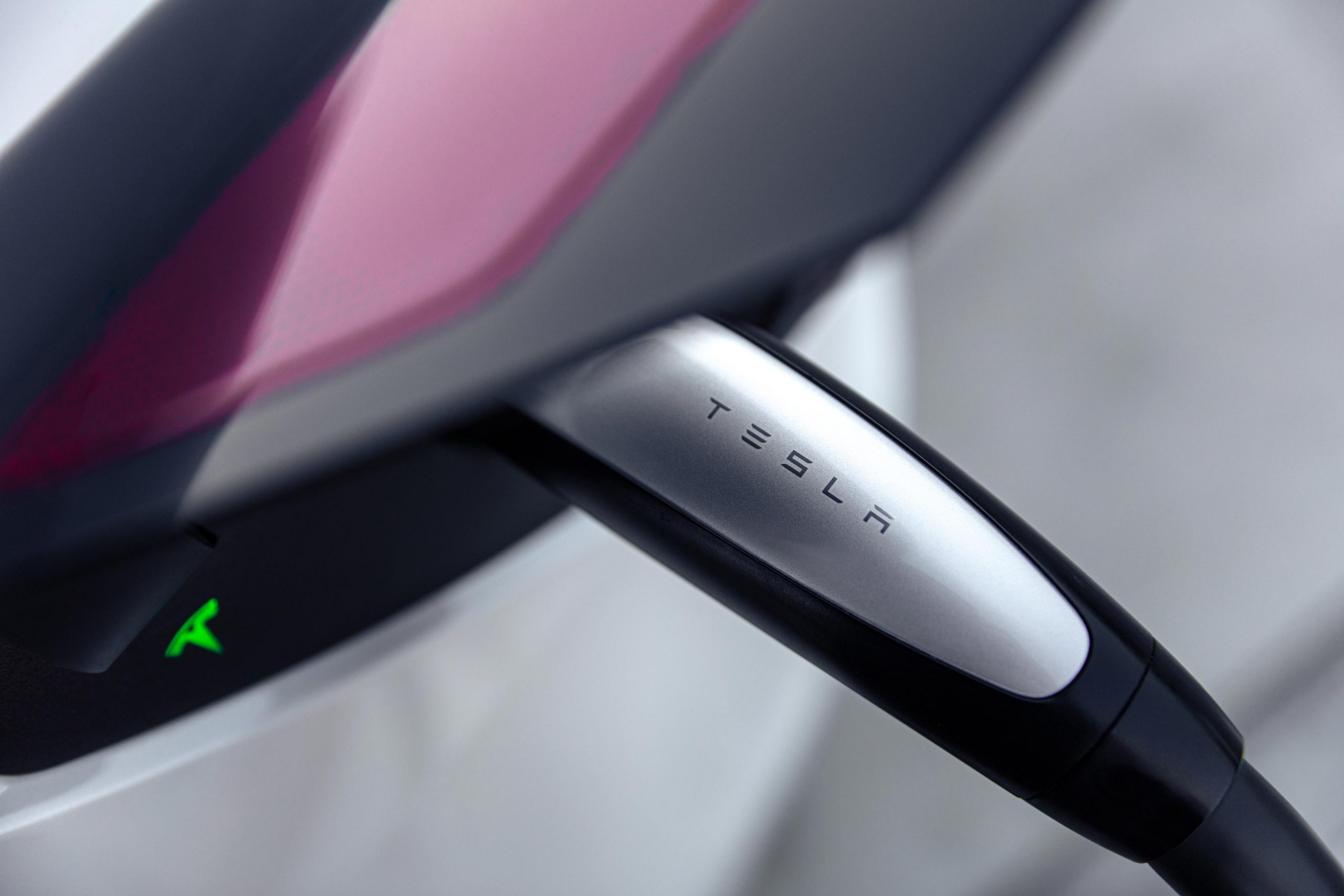
Tesla has rolled out a new Supercharging safety feature in the United States, one that will answer concerns that some owners may have if they need to leave in a pinch.
It is also a suitable alternative for non-Tesla chargers, like third-party options that feature J1772 or CCS to NACS adapters.
The feature has been available in Europe for some time, but it is now rolling out to Model 3 and Model Y owners in the U.S.
With Software Update 2026.2.3, Tesla is launching the Unlatching Charge Cable function, which will now utilize the left rear door handle to release the charging cable from the port. The release notes state:
“Charging can now be stopped and the charge cable released by pulling and holding the rear left door handle for three seconds, provided the vehicle is unlocked, and a recognized key is nearby. This is especially useful when the charge cable doesn’t have an unlatch button. You can still release the cable using the vehicle touchscreen or the Tesla app.”
The feature was first spotted by Not a Tesla App.
This is an especially nice feature for those who commonly charge at third-party locations that utilize plugs that are not NACS, which is the Tesla standard.
For example, after plugging into a J1772 charger, you will still be required to unlock the port through the touchscreen, which is a minor inconvenience, but an inconvenience nonetheless.
Additionally, it could be viewed as a safety feature, especially if you’re in need of unlocking the charger from your car in a pinch. Simply holding open the handle on the rear driver’s door will now unhatch the port from the car, allowing you to pull it out and place it back in its housing.
This feature is currently only available on the Model 3 and Model Y, so Model S, Model X, and Cybertruck owners will have to wait for a different solution to this particular feature.
News
LG Energy Solution pursuing battery deal for Tesla Optimus, other humanoid robots: report
Optimus is expected to be one of Tesla’s most ambitious projects, with Elon Musk estimating that the humanoid robot could be the company’s most important product.
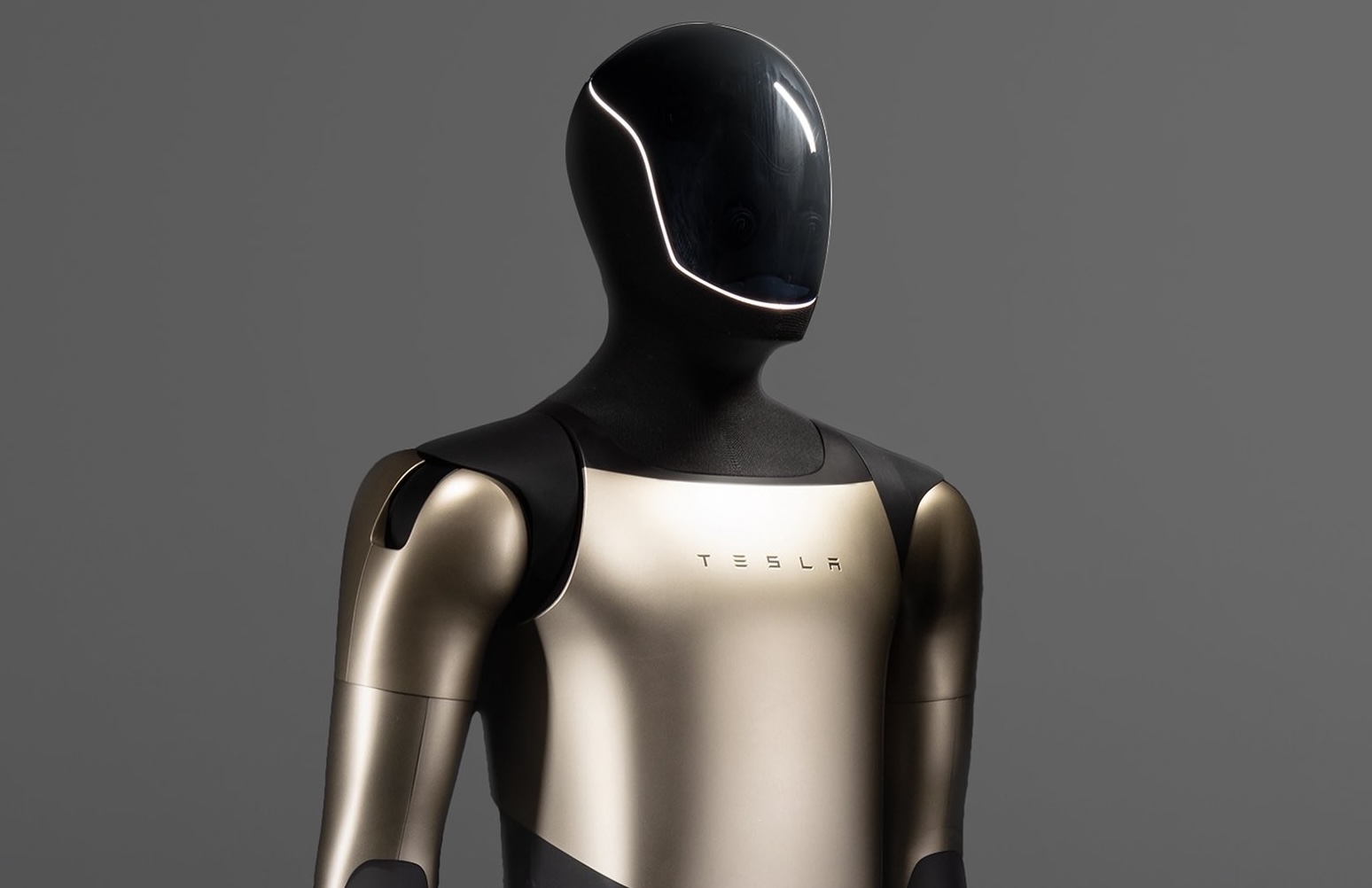
A recent report has suggested that LG Energy Solution is in discussions to supply batteries for Tesla’s Optimus humanoid robot.
Optimus is expected to be one of Tesla’s most ambitious projects, with Elon Musk estimating that the humanoid robot could be the company’s most important product.
Humanoid robot battery deals
LG Energy Solution shares jumped more than 11% on the 28th after a report from the Korea Economic Daily claimed that the company is pursuing battery supply and joint development agreements with several humanoid robot makers. These reportedly include Tesla, which is developing Optimus, as well as multiple Chinese robotics companies.
China is already home to several leading battery manufacturers, such as CATL and BYD, making the robot makers’ reported interest in LG Energy Solution quite interesting. Market participants interpreted the reported outreach as a signal that performance requirements for humanoid robots may favor battery chemistries developed by companies like LG.
LF Energy Solution vs rivals
According to the report, energy density is believed to be the primary reason humanoid robot developers are evaluating LG Energy Solution’s batteries. Unlike electric vehicles, humanoid robots have significantly less space available for battery packs while requiring substantial power to operate dozens of joint motors and onboard artificial intelligence processors.
LG Energy Solution’s ternary lithium batteries offer higher energy density compared with rivals’ lithium iron phosphate (LFP) batteries, which are widely used by Chinese EV manufacturers. That advantage could prove critical for humanoid robots, where runtime, weight, and compact packaging are key design constraints.
News
Tesla receives approval for FSD Supervised tests in Sweden
Tesla confirmed that it has been granted permission to test FSD Supervised vehicles across Sweden in a press release.
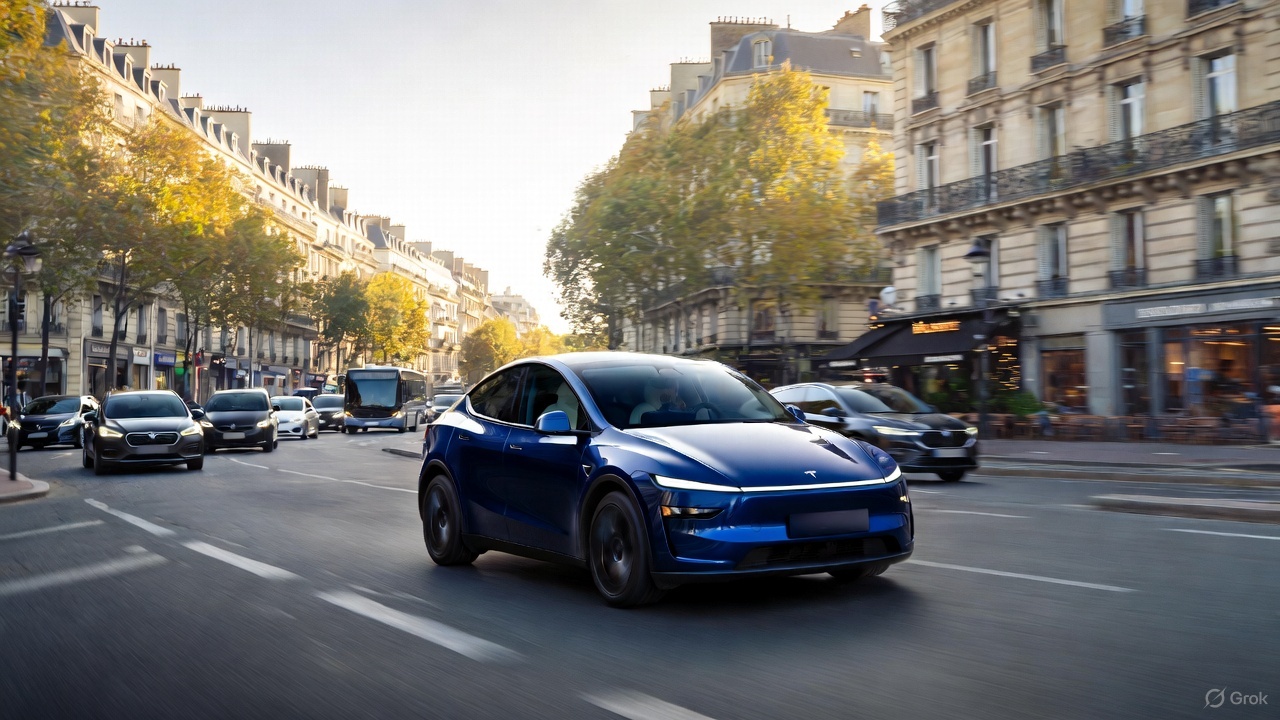
Tesla has received regulatory approval to begin tests of its Full Self-Driving Supervised system on public roads in Sweden, a notable step in the company’s efforts to secure FSD approval for the wider European market.
FSD Supervised testing in Sweden
Tesla confirmed that it has been granted permission to test FSD Supervised vehicles across Sweden following cooperation with national authorities and local municipalities. The approval covers the Swedish Transport Administration’s entire road network, as well as urban and highways in the Municipality of Nacka.
Tesla shared some insights into its recent FSD approvals in a press release. “The approval shows that cooperation between authorities, municipalities and businesses enables technological leaps and Nacka Municipality is the first to become part of the transport system of the future. The fact that the driving of the future is also being tested on Swedish roads is an important step in the development towards autonomy in real everyday traffic,” the company noted.
With approval secured for FSD tests, Tesla can now evaluate the system’s performance in diverse environments, including dense urban areas and high-speed roadways across Sweden, as noted in a report from Allt Om Elbil. Tesla highlighted that the continued development of advanced driver assistance systems is expected to pave the way for improved traffic safety, increased accessibility, and lower emissions, particularly in populated city centers.
Tesla FSD Supervised Europe rollout
FSD Supervised is already available to drivers in several global markets, including Australia, Canada, China, Mexico, New Zealand, and the United States. The system is capable of handling city and highway driving tasks such as steering, acceleration, braking, and lane changes, though it still requires drivers to supervise the vehicle’s operations.
Tesla has stated that FSD Supervised has accumulated extensive driving data from its existing markets. In Europe, however, deployment remains subject to regulatory approval, with Tesla currently awaiting clearance from relevant authorities.
The company reiterated that it expects to start rolling out FSD Supervised to European customers in early 2026, pending approvals. It would then be unsurprising if the company secures approvals for FSD tests in other European territories in the coming months.








